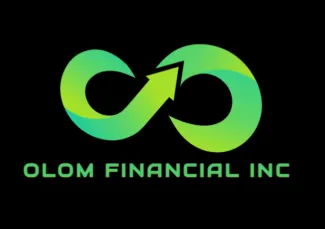
The Ethical Will: A Legacy of Values, Not Just Valuables
When we think of wills, we often envision a legal document that outlines the distribution of our assets after we pass away. But alongside these material considerations, many individuals are turning to a lesser-known type of legacy—a moral or ethical will—to pass down their values, beliefs, and life lessons.
An ethical will doesn't bequeath property or money; it shares the essence of who you are, what you stand for, and the life wisdom you'd like to impart to future generations.
What is an Ethical Will?
An ethical will is a personal document intended to communicate your principles, values, beliefs, and heartfelt messages to your loved ones. It isn't legally binding like a traditional will, nor does it follow a rigid format. In essence, it’s a deeply personal letter or statement that captures the intangibles of your life—your core ethics, spiritual beliefs, hopes, dreams, and lessons learned.
This practice dates back to biblical times when patriarchs passed on blessings, values, and teachings to their descendants. While not as widespread today, ethical wills are seeing a resurgence, especially as people look for ways to leave behind more than just financial assets.
Why Write an Ethical Will?
- Passing on Values: Your possessions may hold monetary value, but your values, principles, and personal experiences hold immeasurable significance. An ethical will allows you to share the morals that have guided you in life and that you hope your family will cherish.
- Clarifying Your Legacy: Beyond wealth, most people desire to leave a legacy of kindness, resilience, or contribution to society. Ethical wills provide a space for you to define what legacy truly means to you.
- Connection Across Generations: It offers an opportunity to speak directly to your loved ones—especially those who may not have been born yet. It can provide a sense of connection and continuity across generations.
- Healing and Reconciliation: Writing an ethical will can also provide an avenue for forgiveness, understanding, and closure. It can serve as a bridge to address family tensions or misunderstandings that linger.
- Sharing Life Lessons: Ethical wills give you a platform to share insights about life, love, success, failure, and resilience, turning your lived experiences into guidance for the next generation.
What Should You Include in an Ethical Will?
There are no hard and fast rules about what to include in an ethical will, but some common themes include:
- Personal Values: The principles that have shaped your decisions, whether they are rooted in faith, philosophy, or personal experiences.
- Life Lessons: Major life events and the lessons you’ve learned from them, from professional achievements to personal setbacks.
- Hopes for the Future: What are your dreams for your children, grandchildren, or even society? What kind of world do you hope they inherit?
- Forgiveness and Reconciliation: If there are any unresolved matters or tensions, this can be a time to offer forgiveness or ask for it.
- Family Traditions and History: You might want to pass down stories or traditions that are meaningful to your family.
How to Write an Ethical Will
Writing an ethical will can feel daunting, but the process can be deeply rewarding. Here are a few steps to help you get started:
- Reflect on Your Life: Take time to think about the experiences that shaped you, the lessons you want to pass down, and the values that define you.
- Keep it Personal: This is your personal legacy, so let your authentic voice shine through. Write from the heart, without worrying too much about formality.
- Be Honest: It's okay to include your struggles, doubts, and failures. Authenticity resonates more than perfection, and your descendants can learn from the challenges you faced.
- Start Simple: You don’t need to write a long document from the start. Begin with key thoughts or even an outline of what you want to say, and build from there.
- Update as Needed: Your ethical will can evolve over time. As your values and perspectives shift, revisit your document and make updates to reflect new insights or lessons.
Ethical Wills and Wealth Planning
For those involved in wealth management or estate planning, incorporating an ethical will alongside the traditional legal will offers clients an opportunity to shape their non-financial legacy. It’s also a way to provide clarity and reduce conflicts by clearly articulating not only what is passed down but why.
An ethical will, alongside trust and financial plans, can offer a holistic approach to wealth transfer, allowing future generations to inherit not just monetary assets, but also the values that helped build and sustain them.
Conclusion
In a world that often focuses on the material, an ethical will reminds us that our values and wisdom are just as important as our possessions. It serves as a bridge between generations, offering guidance, comfort, and connection long after we’re gone. By creating an ethical will, you leave a legacy not just of wealth, but of heart and soul—ensuring that your influence endures through the lives you’ve touched.

